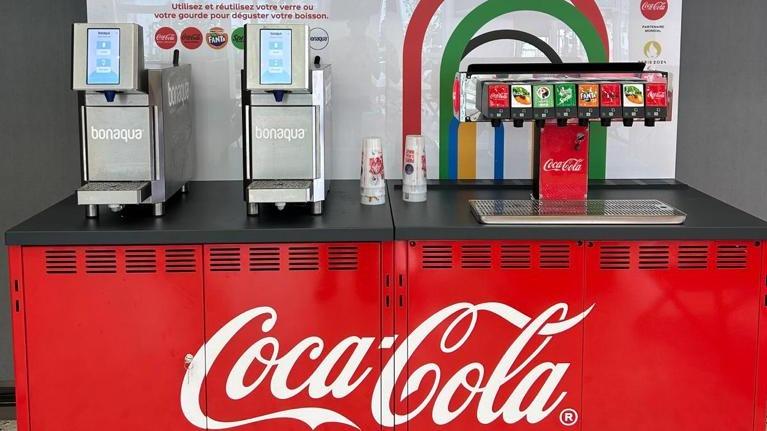First case of covid-19 detected in the Olympic Village 1:13
(CNN) -
A few days before the opening ceremony of the Olympics, eyes are on the weather forecast.
Athletes try to train in conditions similar to what they will face in Japan, but we all know that sometimes Mother Nature is not always friendly.
For years the pressure has been mounting, as heat concerns in the region loomed over the Games.
From Barcelona 1992 to Tokyo 2020, which are the most and least sustainable Olympic Games?
Looking at all the Olympics from Los Angeles 1984 to date, Tokyo's average high temperature is the highest and also the wettest during the two-week competition.
In Tokyo, the average temperature combined with the humidity has the potential to make the wind chill in these games hotter than in Atlanta and Athens.
advertising
Look at the impact of climate change on the atmosphere 0:30
Tokyo is also threatened by typhoons, which can cause torrential rains, high winds and flash floods.
The typhoon threat runs from May to October, but generally peaks in August and September.
It's so hot that some events moved out of town
In July 2018, Kumagaya (located about 65 km northwest of Tokyo) recorded the highest temperature in all of Japan: 41.1 degrees Celsius.
A month later, that temperature was recorded again in the central city of Hamamatsu.
In 2019, the International Olympic Committee recognized and addressed some of the hot weather concerns and moved the marathon and various outdoor events to Sapporo, a colder city about 800 km north of Tokyo.
This is what happens to your body in extreme heat
Temperatures there can be around 22 degrees cooler than in Tokyo during the Games period.
The average high temperature in Sapporo is a little below 26 degrees Celsius at this time of year, similar to places like Boston, Portland, and Minneapolis.
But like these cities in the United States, Sapporo is not without its heat peaks, either.
"In 2019, Sapporo had a stretch in late July and early August where eight out of nine days exceeded 32 degrees," said CNN meteorologist Taylor Ward.
Tokyo's main summer weather phenomenon brings torrential rains
In late June and early July, Tokyo is hit by the Mei-Yu front or the 'plum rains'.
This semi-permanent front moves slowly northward, striking much of East Asia from May to July.
The areas it passes through can experience heavy rain and flash flooding for a few weeks.
This year's rains caused a landslide in Atami that left 2 people dead and more than 20 missing.
Atami is about 96 km southwest of Tokyo.
See the requirements that Japan asks for the Olympics 2:46
The Mei-Yu front generally arrives north of Tokyo in mid-July and ushers in the hottest temperatures and most oppressive humidity of the year from mid-July to August.
While the average high temperature in Tokyo during the Olympics is 30-31 degrees Celsius, high temperatures frequently reach 35 and in recent years have approached 40.
It is not just about the high temperatures, but also the humidity is extremely high.
Athletes and the heat
For American track and field athlete Gail Devers, the heat doesn't appear to be a problem.
"I wish it was warm and comfortable, because the warmer, the more it helps your muscles warm up faster," he says.
But for other athletes, like long-distance runners, the heat can be dangerous, if not deadly.
Climate change is producing deadly heat waves.
Why don't we see it as a crisis?
The combination of this heat with very high humidity has caused several deadly summer heat waves in Japan in recent years.
These conditions could put extreme pressure on athletes in outdoor competitions during the Olympics.
Japan and climate change
These recent heat waves that have impacted many areas in East Asia and around the world can be attributed, in part, to climate change and global warming.
As our planet becomes hotter due to increased greenhouse gas emissions, our climate changes in many ways.
One of them is the increase in heat waves: they last longer, are more intense and more frequent.
3 examples of climate change happening near you 2:23
Recent scientific studies have attributed the most extreme heat waves in Japan to climate change, noting that they are increasingly likely as the planet gets hotter.
Japan records the earliest cherry blossom in 1,200 years.
Scientists warn it's a sign of a major climate crisis
If the Olympics had taken place last year as planned, the weather would have helped.
Much of the summer was unusually cool, as the region's famous rainy season lasted into July, helping to keep some of the heat at bay.
Rain or shine, the Games must go on.









